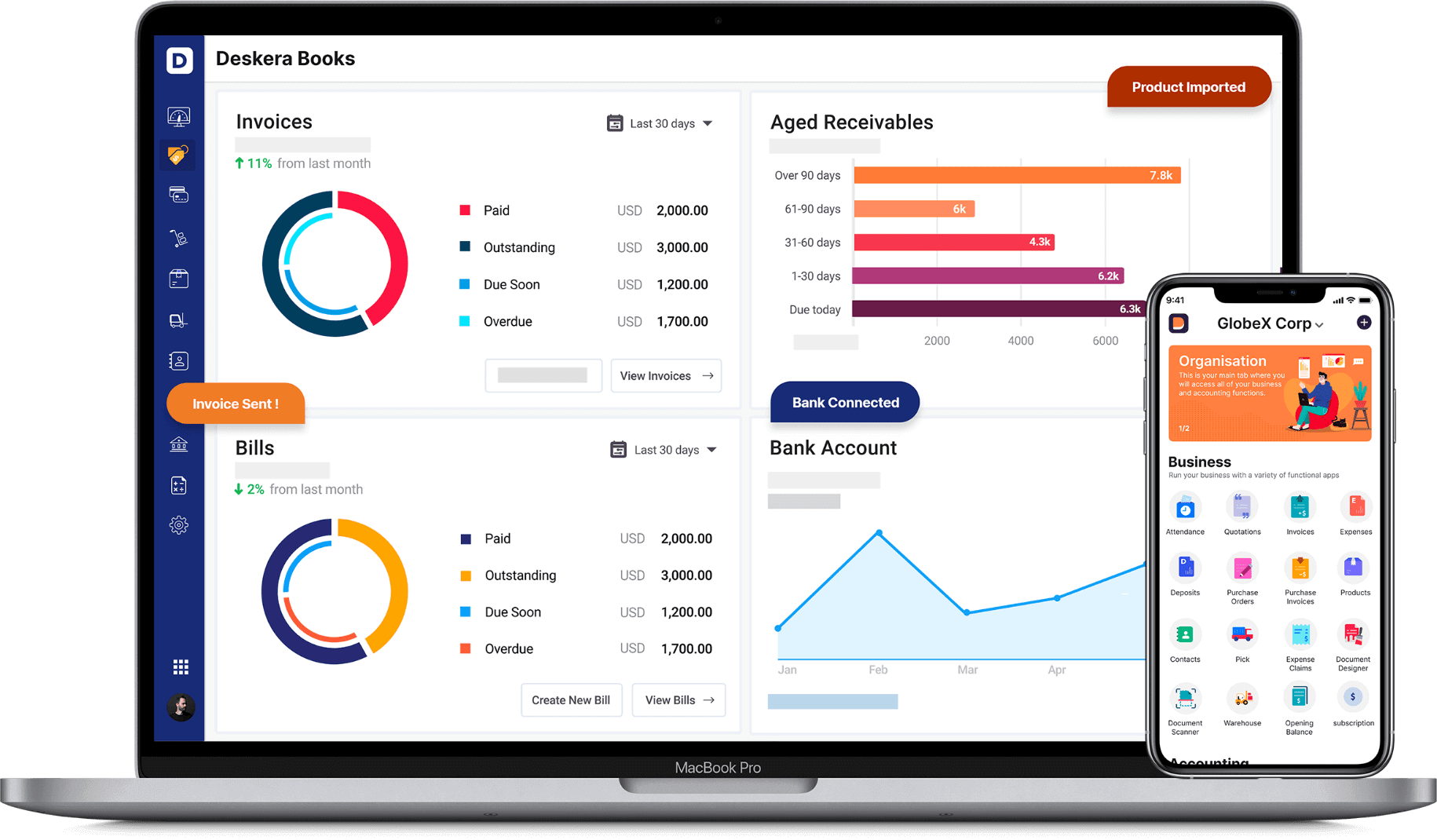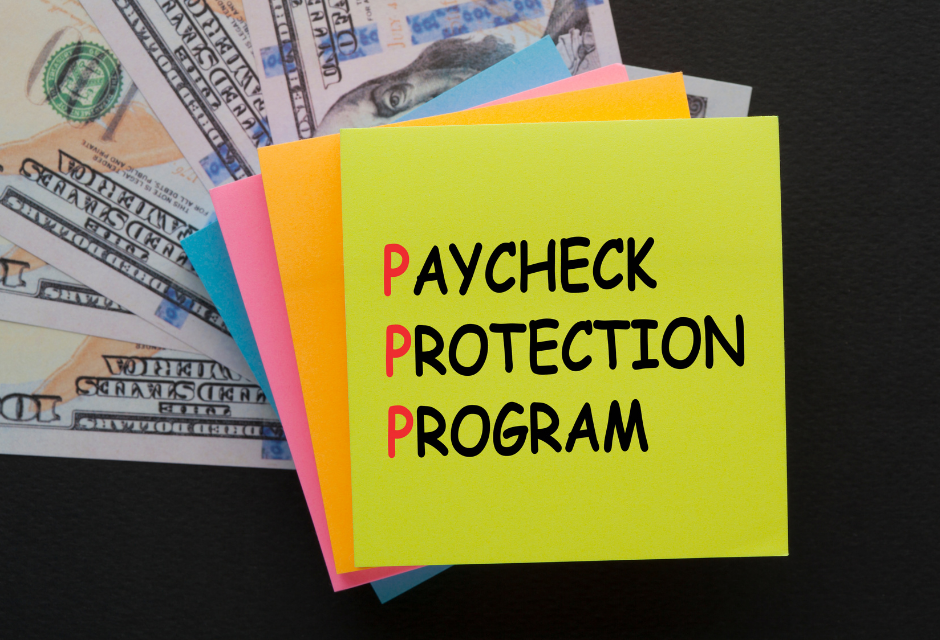While a decline has been observed in the loans taken by small business owners, they still continue to borrow a lot, which according to a 2020 report by the Small Business Administration (SBA), was $645 billion in 2019.
While businesses that look for larger loans play it safe by relying on tried and true financial institutions, i.e., banks for their loans, online lenders and peer-to-peer marketplaces became popular for the smaller loan amounts. However, small and large banks continue to be the first place that small business owners look for financing.
Studies of 2020 showed that 42% of the small business owners applied for a loan at a large bank. In comparison, 43% applied for a loan at a small bank. In contrast, online lenders got only around 20% of business loan applications.

Other types of lenders accounted for only a small percentage of the small business loan, with 9% of the business owners applying for a loan at a credit union and 3% at a Community Development Financial Institution (CDFI).
However, lender banks approved only 65% of the SBA loan applications, as there is a long, complex list of eligibility requirements that look into everything- from a business owner’s personal assets to past run-ins with the law before approving their loan.
Thus, small business owners had to get creative to keep their businesses running while also meeting the unexpected pandemic-related financial challenges.
One of these creative yet popular ways included borrowing from family or friends for smaller expenses to pay back quickly. One-fifth, i.e., 21% of the small business owners were found to be doing this.
If you are reading this article, then it is evident that you are one of those small business owners who is considering taking loans from their friends and family.
While taking loans from friends and family sounds like a perfect solution in the otherwise uncertain and difficult loan market, it needs to be carried out with care and only after you have understood each aspect of it.
That is what this article will help you with by covering the following topics:
- Friends and Family Small Business Loan
- Basic Rules to Follow in case of Friends and Family Small Business Loan
- Pros and Cons of Friends and Family Small Business Loan
- What Happens When You Default Your Friends and Family Small Business Loan?
- Preserving the Personal Relationship in case of Friends and Family Small Business Loan
- Tax Implications of a Family Loan
- How Can Deskera Help You with Friends and Family Small Business Loan?
- Key Takeaways
- Related Articles
Friends and Family Small Business Loan
To define, friends and family financing is when monies, usually in the form of a loan, are taken by a business owner from his or her family members or friends in order to help finance their start-up or growing business.
This is one of the most common sources of debt financing for start-ups or growing businesses that need to meet their operating expenses, as well as short-term liabilities, without it affecting their day-to-day functioning and thereby their cash flow.
Taking a loan from friends or family members, while seems convenient and an effective way around bank approvals or rather disapprovals, it tends to be a delicate situation as while you have personal relationships, you are now also responsible for their earnings.
This is why, even when taking a small business loan from friends and family, it is important to deal as you would deal with a professional investor.
Basic Rules to Follow in case of Friends and Family Small Business Loan
While there is nothing wrong with taking a friends and family small business loan, especially considering that they might give you:
- Better, more flexible lending terms
- Might not require a collateral
- Would not charge you an application fee
- Their interest rate might be lower or even zero
- They might let you skip a couple of payments without penalties
Some of the basic rules that you should follow while taking a small business loan from your friends and family in order to ensure your smooth relations continue are:
- Pitch as you would to a professional investor or a bank. While showing them why it is a good idea for them to lend you the money, you should keep it professional but friendly. This means that you should not expect them to stump up every cent, and hence you should explain what you would be putting in and what you will be taking out.
You should also be clear with them regarding how much you need and why while also taking them through your budget so that they can see that you intend to spend their money wisely and in productive and profitable ways.
Additionally, you should also be open and transparent with them, therefore discussing the risks with them while also showing them the best and worst-case scenarios. You should also manage their expectations at the same time. Lastly, you should show them how and when you will be repaying them.
- Loan, investment, or a gift? This is one of the biggest areas of misunderstanding when it comes to friends and family small business loans. To avoid this, you should make sure that all the involved parties are well informed of what it is.
If you have to choose between an investment and a loan, then you should prefer a loan, as with that, a friend or a family member would not be able to tell you what you should do or not do in regards to your business operation.
In case of choosing between a loan and a gift, and if the loan is a gift, thereby you are not paying interest or making repayments, then the tax office might penalize your lender with tax or penalties. Thus, before accepting a gift, be well aware of all the applicable rules and regulations.
- Treat them as if they were strangers. This means that for the moment, you should forget that your investor is a family member or a friend, and you should make the transaction at arm’s length. This also means that you should insist on having some sort of legal documentation between the two of you that you would have otherwise prepared had your investor been a stranger.
By having a legal document, you would be able to have all the terms and conditions of the loan on the contract that is being prepared.
Another advantage of this is that even if your family member or friends feel that you are not running your business correctly or as per what they anticipated, they would still not be able to interfere with your operations, as you would be able to safeguard yourself against this through the written contract.
This will also prevent the development of hard feelings between you and your friends or family members from whom you have taken a loan.
Additionally, try and make sure that you offer no less than the “commercial” interest rate to your friends and family members for their loans. By having a formal record of the loan agreement, you would be able to avoid misunderstandings at the outset, and in case of disputes, it would help there as well.
Your formal agreement should include the following:
- The amount borrowed
- The applicable interest rate (if any)
- The time period of the loan, with the start date and the final repayment date
- The repayment terms- regular amounts or a lump sum when your business reaches a certain stage, and whether early repayment is okay or not.
- If there are any applicable collaterals, they should be mentioned.
- If applicable, penalties for late or non-payments. For example, an increase in the interest rate, change in the loan terms, the addition of extra costs to the loan, taking of collateral, or instigating court action.
- Debt may be better than equity. Debt may be better than equity because if you resort to paying back the principal amount along with interest to someone that you have borrowed from, then they would not be able to tell you how to run your business.
In contrast, if you repay a friend's and family's small business loan in equity, then they would become your legal business partner and thereby be able to interfere with your business operations. The detrimental effects of this might go as far as affecting your gross profits and net profit ratio while losing customer loyalty and customer retention.
- Tie all payments to your cash flow. In the case of friends and family small business loans, try to avoid obligations with fixed repayment schedules. Instead, you should opt for cash flow obligations, which means that your investor will receive a percentage of your operating cash flow (if any) until they have either been repaid in full with interest or they have received a specified percentage return on their investment.
- Consider nonvoting stock. After taking a friends and family small business loan, if they insist on buying stock in your company, try to make sure that it is a nonvoting stock so that they do not have any right to second-guess your every management decision.
- Propose clear repayment terms. By doing so, you would be giving them the reassurance that you intend to repay them back and that that will be your top priority. If your lender friend or a family member has had a bad experience of lending to friends or family, you might have to assure them that you are not irresponsible and that you will definitely repay your debt to them.
When proposing repayment terms, also mention the repayment start date and by when you expect to repay them in full. You should even prove your creditworthiness by sharing your business financials, business plan, etc., with your lender friend or family member.
Your terms of repayment should also be clearly mentioned in your loan agreement. The benefit of following through with this rule will ensure that not only do they feel safe in lending you money but also that you are held responsible for repaying them over the course of time at certain defined intervals.
- Always follow-through. This means that you should always do what you said you would do, like:
- Make your repayments on time. This is important because if your friends or family members see their money coming back to them, then they will not begrudge you even when they see you spending some money on yourself.
- Make sure that you give them a report with all the key financial statements, financial KPIs, and business metrics at the end of the year so that they come to know how your business is performing, how much you have repaid, and what are the obstacles that you might face.
- Make sure that you are professional with them and that you treat them with respect. This will ensure that your relationship with your friends or family members stays untarnished. The other benefit of the same is that such a successful relationship with your friend or family member lender would become good evidence to be put in front of a professional lender down the road.
If, however, you are unable to follow through, then you should give a heads up to your lender for the same.
- Always have a backup plan. Considering the uncertainties of the businesses, whether it be the purchasing decisions of your buyer persona, or the performance of your salesperson, or the federal taxations, etc., the business environment tends to be uncertain, making it crucial to have a backup plan.
A backup plan will help you in securing friends and family small business loans in the following ways:
- It will demonstrate your professional approach to the loan. Sharing your backup plan with your friend or family member will show them how you are thinking ahead and taking into consideration all the possible scenarios that might make you fall behind a repayment schedule.
- It will explain to your lender what will happen if you miss a payment. However, while doing so, you should not forget to stress on the unlikelihood of such an event ever occurring. However, by doing this, you will be showing your lender your commitment to making on-time payments by implementing a late fee that will increase with each missing payment.
- Offer a collateral. Finances are a sensitive and tricky subject. Thus, sometimes, you might have to give it your all in order to get a chance to take your start-up or business further. Thus, if you see fit, you should offer a collateral to your lender as a part of your backup plan in order to make the deal appear less risky to them.
- Establish recurring transfers to your lender’s bank account. You should assure your lender friend or family member of the same, and you should actually do it as soon as possible in order to avoid missing any payments.
Pros and Cons of Friends and Family Small Business Loan
While friends and family small business loans are more convenient if you want an alternative to the professional lenders, it comes with their own set of pros as well as cons.
The Pros of Friends and Family Small Business Loan
- You would not have to fill in any application forms to get the loan.
- There would be no credit checks that you would have to clear in order to get the funds from the loan.
- It is quite likely that your friends and family members will give you the loan at low-interest rates or even at no interest rates.
- Friends and family small business loans come with flexible repayment terms, with the possibility of postponing the initial repayments to later months.
- The success of friends and family small business loans will help in building a business credit history for future lenders.
The Cons of Friends and Family Small Business Loan
- In the case of friends and family small business loans, they won’t be able to offer you floating interest rates as easily.
- It is likely that the loans you get from your friends and family would be of a smaller amount than the ones you would be able to get from the bank.
- Here, only term loans are offered, and not lines of credit.
- If the roles are not clear, and the commitments are not kept, then it can damage relationships with your friends and family members.
What Happens When You Default Your Friends and Family Small Business Loan?
Similar to other loan contracts, even in the case of friends and family small business loans, you are legally obliged to repay your loan. If you fail to abide by the terms of the loan agreement, as decided with your lender, then they can take legal action against you.
In fact, with your loan agreement as the proof, the lender will be able to sue in small claims court, get a judgment, and then pursue collection activities on the loan- like a wage garnishment or property liens, just like other creditors.
In such cases, if you are unable to negotiate more reasonable loan terms privately, then you can take the help of a lawyer who can either negotiate on your behalf to include part of the balance due in the debt settlement agreement or to add it to a debt consolidation loan.
It is, however, important that you reach an agreement with your lender before a judgment is entered in small claims court because once that happens, your lending party might be able to pursue your personal assets, bank account, and wages to get their repayment.
Preserving the Personal Relationship in case of Friends and Family Small Business Loan
While it is unavoidable for an individual to have ups and downs in regards to their finances, it does become more uncomfortable when your friends and family are also a part of it. During such times, when it is quite likely that loan agreement conditions are ignored or broken, relationships built over years or even decades can crumble.
To make sure that this does not happen, it is important that you keep the communication lines open with your friends or family members when you fall behind on a loan that you have taken from them. Good communication would become your best tool as well as defense in avoiding animosity with them.
While doing so, always remember that the one who has given you a loan would be taking it as an investment, and thus, they would be interested in knowing how your business is doing, as well as when their loan would be paid off. It is also because of this reason that it is extra important to have a written loan agreement with your lender, friends, and family members.
As a borrower, you should also make it a habit to give periodic updates (monthly, quarterly, or annually) about your business to your lenders. This will also help them in knowing if there are going to be any problems related to the repayment of the loan and if there are any alternative relief options while you resolve the problem.
Lastly, you and your family members and friends should anticipate trouble spots and decide how you will be responding to the same. This will also help in preventing heated arguments with your friends and family members over a debt while preserving your relationship with them.
Tax Implications of a Family Loan
According to the Federal Reserve Board Survey of Consumer Finances, loans from family and friends amount to $89 billion each year in the United States. The most popular reasons for asking for a loan from friends and family is to either start a business or purchase a home.
In fact, a national survey by the Fundable found that 38% of the start-up businesses relied on friends and family small business loans. In this, dealing with the IRS and meeting all their rules and regulations is critical, though most of them are for the lender. However, the borrower and lender tend to overlook this.
One of the first things that the IRS expects is clear proof that it is a loan and not a gift. This means that your lender will have to collect interest under the IRS rules for the applicable federal rate. In 2021, the minimum rate of interest was 0.25% for loans that were for less than three years, 0.58% for loans that were for three to nine years, and 1.15% for loans that were for more than nine years.
Thus, if you are not paying the applicable interest rate to your lenders, and they are not collecting it from you, then the IRS could deem the money as a gift and therefore apply gift taxes on it. The gift taxes would then have to be paid to the IRS.
Additionally, you should have a promissory note between you and your lender. This note should spell out the interest rate, terms and conditions, length of the repayment period, and even about the ability to transfer the loan to another party. There should also be an amortization table that shows the principal amount and interest paid, as well as the balance due after each month for the lifetime of the loan.
Your lender must file IRS form 1098 that will state how much interest you have paid to them over a period of a year. They will also need to file IRS form 1099, which will state the interest they received on the loan and report that amount on their tax return. This is a crucial step in the loan process because if they are missed, there would be severe tax consequences.
How Can Deskera Help You with Friends and Family Small Business Loan?
Deskera Books is online accounting software that is designed to manage and automate your business financial transactions, including your friends and family's small business loans.

With Deskera Books, all your behind-the-scenes heavy lifting like managing the chart of accounts, general ledger, journal entries, and tracking of changes via audit trail would be automated, thereby saving you time for other business operations.
Additionally, Deskera Books also facilitates connections with over 10,000 banks, due to which you would be able to automatically import transactions and reconcile. This will also ease your repayment of the loan to your lenders.
Lastly, not only would you be able to add your accountants for free, but through the Deskera Books dashboard, you would also be able to access all your real-time reports like income statements, balance sheets, trial balances, and other financial statements online.
Key Takeaways
When you need money for your start-up or for your growing business, taking a small business loan from your friends and family is quite a popular choice, especially when you are unable to meet the eligibility requirements of professional lenders.
However, in order to preserve your personal relationships, ensure that you repay the full loan amount, and your lenders have the complete insight into your business and the probable ups and downs, you should follow some basic rules like:
- Pitch as you would to a professional investor or a bank.
- Decide whether it is a loan? Investment? Or a gift?
- Treat them as if they were strangers.
- Debt may be better than equity
- Tie all payments to your cash flow.
- Consider nonvoting stock
- Propose clear repayment terms.
- Always follow-through
- Always have a backup plan
- Establish recurring transfers to your lender’s bank account.
A friends and family small business loan does have its own set of pros and cons, and after understanding them, you should determine whether it will be a good fit for you and your needs or not.
Deskera Books is the software that will be able to help you with your friends and family's small business loans while also ensuring that you are complying with statutory requirements as it comes pre-configured with accounting rules and tax codes, among the other things.
Related Articles












